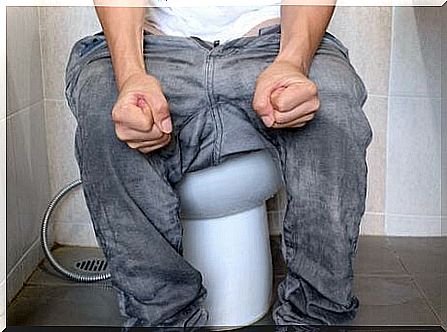Why It Is Important Not To Resist Bowel Movements

Bowel movements are a natural way for the body to remove the feces that the body produces. You should therefore not resist bowel movements.
It can have serious complications for the digestive system. These can be both short-term and long-term. By learning more about this subject, you can avoid developing bad habits and you can also act immediately when the body needs it.
If you choose to resist bowel movements to avoid public toilets or because you do not want to use the toilet at someone else’s home, you may end up harming their body. It is therefore important to inform yourself and understand how important the bowel movements are for the body.
The consequences of resisting bowel movements
It may seem harmless to resist bowel movements, but it actually risks the health of the body. The reason is that once you get rid of feces, your digestion can begin to prepare for the next job. It is very important that you respect this process.
Below we address several consequences of not respecting the digestive process.
An inability to absorb nutrients
It is the small intestine that has the task of absorbing nutrients in the body. If you choose to resist bowel movements, this can cause the intestines to collapse. This makes it very difficult for the body to absorb the nutrients.
Painful bowel movements
If you struggle when you need to go to the toilet, the body begins to absorb the water from the stool. The stool will therefore be very dry and hard, and it will therefore hurt when you have to get rid of the latter. It can lead to further complications such as hemorrhoids and cracks in the anal area.
Abdominal tension
Another consequence is the accumulation of gases in the intestines. When human feces are broken down, it releases large amounts of gases that can weaken the intestinal flora – healthy intestinal bacteria. The body therefore becomes more vulnerable to attacks from harmful bacteria.
You can become constipated when you try to resist bowel movements
Going to the toilet is a complex process that involves nerve endings and therefore also the brain. The anal area informs the brain that it is time to go to the toilet.

If you choose to resist bowel movements, the impulse to go to the toilet eventually weakens or disappears. As a result, one’s colon becomes heavier and too weak to dispose of feces properly. In other words, you can suffer from constipation.
Constipation also leads to other problems such as hemorrhoids, abdominal tension, irritated colon, etc. Obesity, fluid retention and other problems can occur. Some consequences can be more serious than others and have a major impact on one’s quality of life.
Diverticulitis
A complication that can occur when you resist bowel movements for a long time is diverticulitis. In this condition, small folds on the inside of the intestinal walls, called diverticula, become inflamed and swollen. This occurs as a result of the stool becoming hard.
Blood poisoning (sepsis)
Another consequence is that blood poisoning can occur. It’s very serious. The bacteria can enter the bloodstream and lead to death.
Why is it important to go to the toilet every day and not resist bowel movements?
The diet therefore needs to include foods that are rich in fiber. Experts agree that you must go to the toilet at least twice a day. This is a reflection of the body’s digestive health. The stool should be soft and not have a strong odor. This is especially important during pregnancy.

Recommendations for healthy bowel movements
To improve the body’s functions, it is important that you try to follow these recommendations:
- Eat high-fiber foods, such as fruits, vegetables and whole grains.
- Exercise regularly, because this improves the nervous system and helps you regulate your bowel movements.
- Avoid stress.
- Drink at least 2 liters of water or other healthy drink per day.
If you notice that the suggestions above do not work, talk to your doctor.
It is important that you are aware of how important your bowel movements are. They not only keep the digestive system clean, but also contribute to public health.









